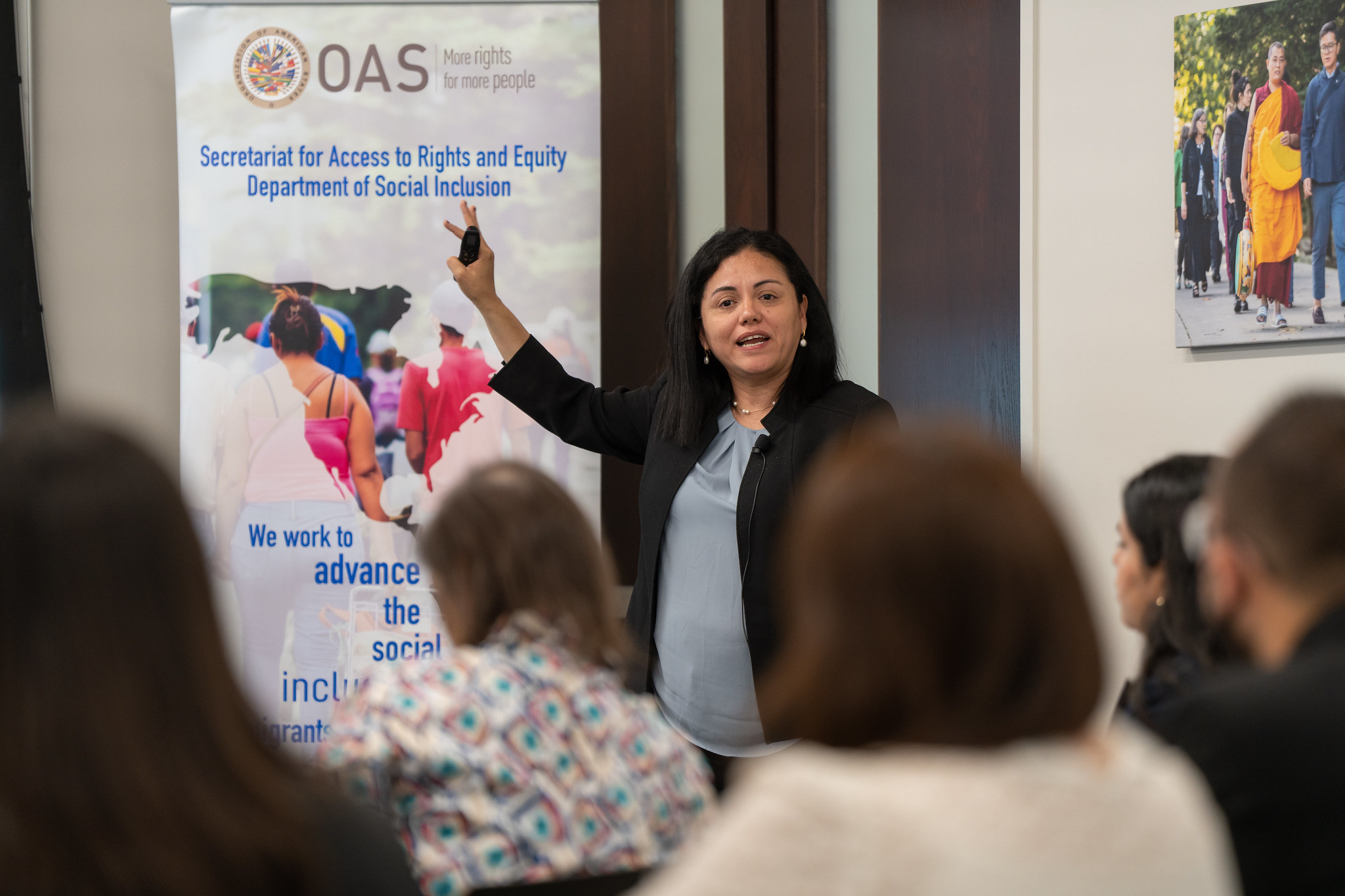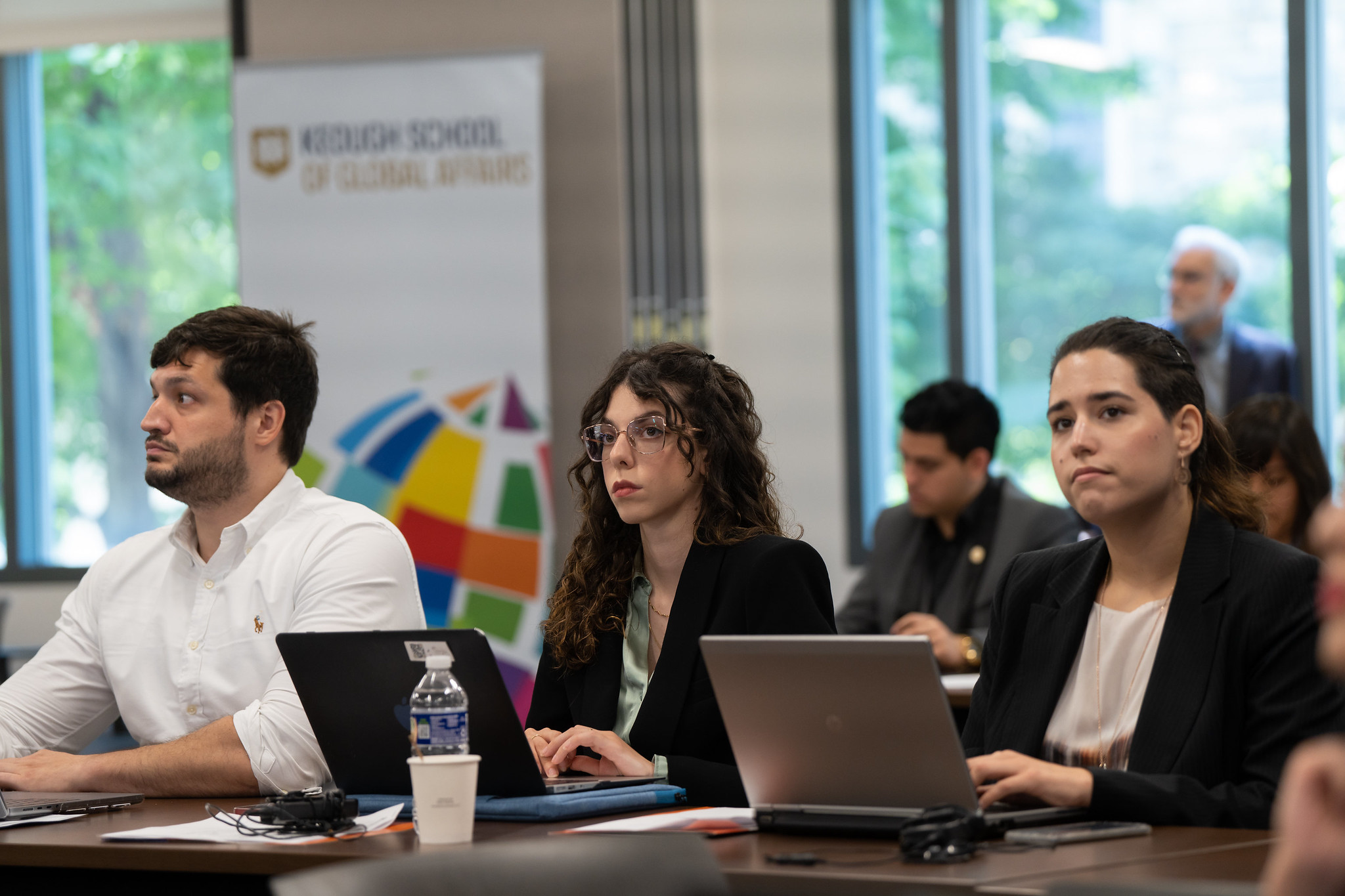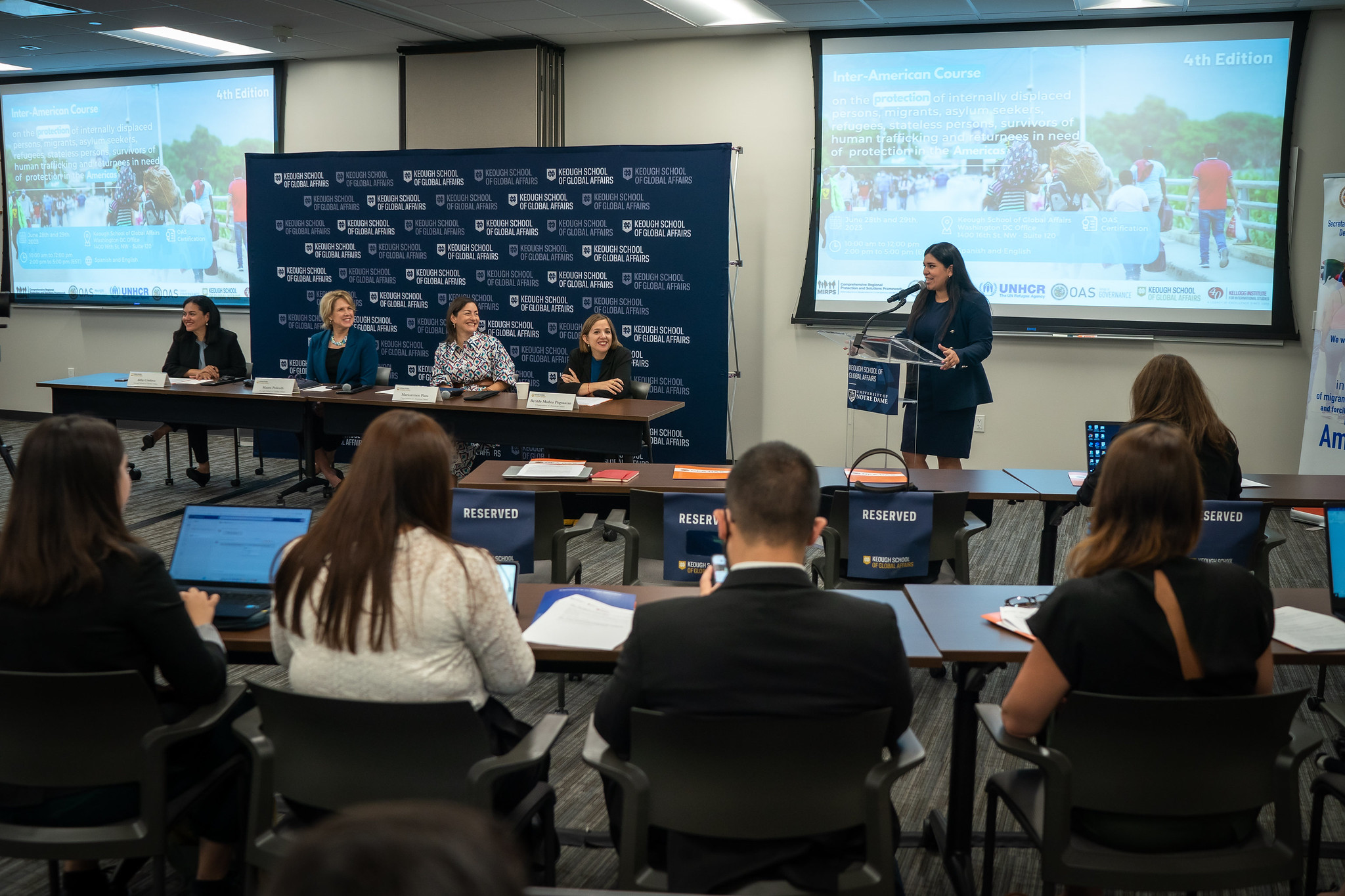The Keough School of Global Affairs is working to advance the human rights of migrants and refugees through a partnership with the Organization for American States (OAS).
The collaboration, part of the ongoing relationship between the Keough School and the OAS’ Department of Social Inclusion, enables the school to influence policy and creates opportunities for dialogue among researchers, students, and policymakers. It builds upon a shared Keough-OAS focus on promoting human dignity.
The partnership recently culminated in a summer training at the Keough School Washington Office. Speakers analyzed the dynamics and root causes of migration, asylum, and forced displacement in the Americas and protective factors that allow people to stay in their country or region. They discussed how migration affects women and girls and how international organizations can help improve migration policy. In addition, they explored how rhetoric can shape public support for policies that help integrate migrants.
"The training was an effective avenue for the Keough School to influence real-world policy by drawing on our deep expertise in human rights and democracy."

on migration and human rights at the Keough School Washington Office.
“The training was an effective avenue for the Keough School to influence real-world policy throughout the Americas by drawing on our deep expertise in human rights and democracy,” said Abby Córdova, associate professor of global affairs at the Keough School and Kellogg faculty fellow. “It was a fantastic opportunity to feature academic insights from our Kellogg Institute for International Studies and our Pulte Institute’s Central American Research Alliance.”
Sharing insights to inform policy
Faculty from the Keough School and its institutes translated academic research into actionable takeaways that policymakers could use to make tangible changes and improve global responses to migration.
“Rather than simply presenting research findings, we outlined strategies that policymakers and government officials could implement,” Córdova said. “The knowledge that we shared during this course was extremely valuable, particularly for those who work as expert witnesses in asylum cases. We want to support the on-the-ground work of people who are defending the human rights of migrants in communities around the world.”
Rhetoric and human dignity
Throughout the training and a related panel discussion, speakers emphasized the importance of rhetoric in shaping public opinion and policy around migration. A common theme emerged: the need to change public conversations, which often focus on crime and perceived threats rather than migrants’ humanity.

insights with government officials who are on the frontlines of defending migrants’ rights.
Keynote speaker and former Costa Rican President Carlos Alvarado Quesada recalled how he witnessed the disconnection between rhetoric and reality several years ago while serving as a government minister. During a trip to the northern part of the country, he visited a tent settlement of more than 10,000 migrants and was struck by the vulnerability of the families he encountered. “That’s why it’s essential that we speak about these narratives,” he said, “and the way we look at migrants as our fellow human beings.”
Speakers also discussed a report, Deconstructing Myths and Negative Narratives Around Migration, produced by the OAS’ Department of Social Inclusion, Equilibrium CenDE, and Club de Madrid, the world’s largest forum of democratic former presidents and prime ministers. Panelists shared lessons from Colombia, Peru and Mexico, explored policy and practice, and reflected on how different populations have reacted to migration.
Connecting academics, students, and policymakers
The emphasis on rhetoric provided a meaningful opportunity for student engagement, Córdova said, noting that Jack Griffiths, a 2023 Keough School graduate, presented research from the capstone project he conducted as an undergraduate. Córdova also presented research she co-authored with Natán Skigin, a Kellogg Institute PhD Fellow, which explored how changing the narratives on migration can reduce prejudice and increase support for integration policies.
“Opportunities like this partnership are excellent ways for our students to influence policy through the research,” Córdova said. “Student presenters learn how to engage with policymakers and address a broad, multidisciplinary audience.”

exchange ideas and learn from one another.
The collaboration with OAS has facilitated additional opportunities for dialogue that will inform researchers and policymakers alike, paving the way for future collaborations that reinforce shared values, she said.
“This partnership is a two-way street,” Córdova said. “Conversations with policymakers inform our research agenda, and we have a greater policy impact by engaging with diplomats and government officials on a regular basis. The common understanding at the core of our work with OAS is that we must put the human dignity of each person and of all people at the center of our discussions, actions, and policies.”
This story originally appeared at keough.nd.edu.
The Kellogg Institute for International Studies, part of the Keough School of Global Affairs at the University of Notre Dame, is an interdisciplinary community of scholars and students from across the University and around the globe that promotes research, provides educational opportunities, and builds partnerships throughout the world on the themes of global democracy and integral human development.





